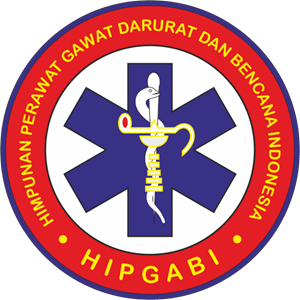DUKUNGAN SOSIAL DAN MOTIVASI BERHUBUNGAN DENGAN KEPATUHAN PEMBATASAN ASUPAN CAIRAN PADA PASIEN PENYAKIT GINJAL KRONIK YANG MENJALANI HEMODIALISIS
Downloads
Introduction: Adherence on fluid intake restriction is one of the problems of chronic kidney disease patients on hemodialysis. Poor adherence could lead to treatment failure this inturn lower quality of life for patients, increase morbidity and mortality. Social support and motivation are important factors of adherence on fluid intake restriction among patients with chronic kidney disease undergone hemodialysis. The aimed of this study was two fold. Firstly, it aimed to identify the relationship between social support and motivation with adherence on fluid intake restriction among patients with chronic kidney disease undergone hemodialysis. Secondly it analyzed relationship between both variable.
Methods: This study used cross-sectional design. Samples were patients with chronic kidney disease undergone hemodialysis at RSUD Dr. M.M. Dunda Limboto, Kabupaten Gorontalo. The independent variables were social support and motivation. The dependent variable was adherence on fluid intake restriction. Sample were 19 individuals, recruited using consecutive sampling. Data were collected through questionnaire and analyzed by of Spearmen Rho statistical test with significance level of α<0.05.
Result: Result of the research showed that there was a relationship between social support and motivation with adherence on fluid intake restriction among patients with chronic kidney disease undergone hemodialysis with significance level p=0.000 it means the relationship between two variable was reliable. The higher the social support, the better patients adherence on fluid restriction. The limitation of this research was small sample size to be used.
Conclusion: It can be conclude that there was relationship between social support and motivation with adherence on fluid intake restriction among patients with chronic kidney disease undergone hemodialysis. Further studies should involve more respondents.
Andriani, D.A. 2013. Hubungan dukungan sosial terhadap kepatuhan pembatasan asupan cairan pada pasien penyakit ginjal kronik yang menjalani hemodialisa di RSUD Kota Semarang, Skripsi, Universitas Muhammadiyah Semarang.
Baughman, D.C. 2000. Buku Ajar Keperawatan Medikal Bedah: Brunner & Suddarth, EGC, Jakarta.
Gerungan, W.A. 2010. Psikologi Sosial, cetakan ketiga, PT Refika Aditama, Bandung.
Hidayati, S. 2012. Efektifitas Konseling Analisis Transaksional Tentang Diet Cairan Terhadap Penurunan Interdialytic Weight Gain (IDWG) Pasien Gagal Ginjal Kronis Yang Menjalani Hemodialisa Di Rumah Sakit Umum Daerah Kardinah Tegal, Tesis, Universitas Indonesia, Depok.
Kammerer, J., Garry, G., Hartigan, M., Carter B. & Erlich, L. 2007.
‘Adherence in patients on dialysis; strategies for success', Nephrology Nursing Journal: Sep-Okt 2007, Vol 34, No. 5, 479-485.
Koontz, H. 2001. Manajemen, Erlangga, Jakarta.
Nursalam 2014. Manajemen Keperawatan; aplikasi dalam praktik keperawatan profesional, Salemba Medika, Jakarta.
Riskesdas 2013. Riset Kesehatan Dasar, Kementerian Kesehatan RI Jakarta.
Rustiawati 2012. Dietary intake monitoring application (DIMA) untuk evaluasi asupan cairan dan diet bagi pasien hemodialisa, FIK-UI, Jakarta, diakses 09 September 2014 <http://kesehatan.kompasiana.com/makanan/2012/12/21/dietary-intakemonitoring-application-dima-untukevaluasi-asupan-cairan-dan-dietbagi-pasien-hemodialisa-512803.html>.
Sarafino, E.P. 2006. Health psychology biopsychosocial interaction, 5th edn, John Wiley & Sons, USA
Smeltzer, S.C. & Bare, B.C. 2002. Buku Ajar Keperawatan Medical Bedah, Volume 2, EGC, Jakarta.
Syamsiah, N. 2011. Faktor-faktor yang berhubungan dengan kepatuhan pasien CKD yang menjalani hemodialisa di RSPAU Dr. Esnawan antariksa halim perdana kusuma Jakarta, Skripsi, Universitas Indonesia, Depok.
U.S Renal Data System 2005. USRDS 2005 Annual Data Report: Atlas Of End Stage Renal Disease in The United State
1. The journal allows the author to hold the copyright of the article without restrictions.
2. The journal allows the author(s) to retain publishing rights without restrictions.
3. The legal formal aspect of journal publication accessibility refers to Creative Commons Attribution (CC BY).

















